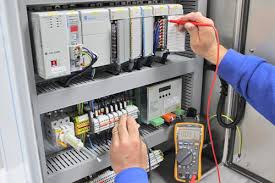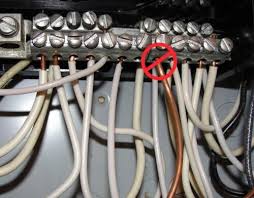Electrical permits and inspections
Arrange for electrical wiring permits and inspections from Hydro for:
any new building, renovation or addition;
the installation of any electrical equipment;
any alteration, repair, or extension of any electrical equipment.
Before any electrical work is started, you must have an electrical permit.
To obtain an electrical permit, complete an Electrical Permit Application and submit it to your local Hydro Customer Service Centre. Electrical contractors can submit their applications online through ePermit.
View electrical contractor permit fees.
View electrical codes, standards, and guides.
By law, all electrical wiring in must be inspected to ensure compliance with local bylaws and the Electrical Code. All wiring must be visible for inspection and all electrical equipment must be approved.
Electrical equipment approval
For inquiries about the requirements for electrical equipment approvals
Hydro recognizes a number of Certification Bodies (CBs) and Inspection Bodies (IBs) to provide certification, field approval, and special acceptance services for electrical equipment

Department of Construction & Inspections
Electrical Inspections
In response to COVID-19, the Governor has placed new requirements on construction activity. We will only inspect those projects that meet the Governor’s requirements. See SDCI’s Inspections for instructions on how to request inspections for projects.
What Is It?
Most electrical permits require three inspections: cover, service, and final.
Cover inspection. Schedule this inspection when all new circuits are wired (boxes installed, wires run, grounding conductor connected or made up, nail plates installed in areas as needed). Don’t cover your work with insulation, receptacles, or wall switches until the inspector has approved it. Cover inspections also include underground installations. Don’t cover trenches, ditches, or slabs until the inspector has approved them.
Service and feeder inspection. Schedule this inspection when the service electrical mast, meter base, service panels, grounding electrode conductors, and branch circuits (if possible) have been installed.
Final inspections. Schedule this inspection when the electrical work has been completed. Make sure panel boxes are covered, circuits are labeled in the right spaces on the box, and all cover plates are installed. You must have all of equipment and appliances installed, grounded, and energized for final inspection.
Addressing Inspection Issues
We may not approve your electrical work for a number of reasons, such as:
Your inspector could not get on site
Your work is not complete
There are code violations
Inspection Results
You can find results and notes using our Services Portal. Your inspector will add notes about any failed or partial pass inspection result to your permit information.

Electrical Safety Inspections
These new regulations require landlords to have the electrical installations in their properties inspected at least every 5 years and tested by a person who is qualified and competent. Landlords will also have to provide a copy of the electrical safety report to their tenants as well as to the local authority if requested.
For most landlords in the private rented sector this will not require a change in behaviour. The majority of landlords already check their installations regularly so they can provide the safest homes possible. However to ensure every landlord can comply with these regulations
What the regulations say:
Private landlords must ensure every electrical installation in their residential premises is inspected and tested at intervals of no more than 5 years by a qualified and competent person.
Following the inspection and testing, a private landlord must:
obtain a report from the person conducting that inspection and test, which gives the results of the inspection and test and the date of the next inspection and test
supply a copy of that report to each existing tenant of the residential premises within 28 days of the inspection and test
supply a copy of that report to the local housing authority within 7 days of receiving a request in writing for it from that authority
retain a copy of that report until the next inspection and test is due and supply a copy to the person carrying out the next inspection and test
supply a copy of the most recent report to any new tenant of the specified tenancy to which the report relates before that tenant occupies those premises; and any prospective tenant within 28 days of receiving a request in writing for it from that prospective tenant
Action needed in the event of an Unsatisfactory Report:
Where an Electrical Installation Safety Report identifies urgent remedial work or requires ‘further investigation’, the private landlord must ensure that the required work is carried out by a qualified and competent person within 28 days (or the period specified in the report if it is less than 28 days), starting with the date of the inspection and testing.
Construction and Building Inspectors
Specialties within this occupation include: Electrical Inspectors; Elevator Inspectors; Home Inspectors; Mechanical Inspectors; Plumbing Inspectors; Public Works Inspectors; Specification Inspectors
What Would I Do?
Construction and Building Inspectors examine buildings, highways and streets, sewer and water systems, dams, bridges, and other structures. Inspectors ensure that construction, alterations, or repairs comply with building codes and ordinances, zoning regulations, and contract specifications. Inspectors make an initial inspection during the first phase of construction and follow up with additional inspections throughout the construction project. However, no inspection is exactly the same. In areas where certain types of severe weather or natural disasters—such as earthquakes—are more common, Inspectors monitor compliance with additional safety regulations designed to protect structures and occupants during those events.
Many Inspectors investigate construction or changes being done to buildings without proper permits. Inspectors advise violators to obtain permits and submit to inspection. Inspectors may testify in court against code violators. They check the status of construction inspection activities and keep track of permits issued. If needed, Inspectors act on their findings. If a problem is found and not corrected within a specified period of time, government Inspectors have the authority to send out a “stop-work” order. Although Inspectors spend considerable time inspecting construction worksites, they also spend time in field offices reviewing blueprints, answering letters or telephone calls, writing reports, and scheduling inspections.
Electrical Inspectors examine the installation of electrical systems and equipment to ensure that they function properly and comply with electrical codes and standards.
Elevator Inspectors examine lifting and conveying devices, such as elevators, escalators, moving sidewalks, lifts and hoists, inclined railways, ski lifts, and amusement rides.
Home Inspectors conduct inspections of newly built or previously owned homes, condominiums, townhomes, manufactured homes, apartments, and commercial buildings. Home inspection has become a standard practice in the home-purchasing process. Home Inspectors are most often hired by prospective home buyers to inspect and report on the condition of a home’s systems, components, and structure. Although Inspectors look for and report violations of building codes, they do not have the power to enforce compliance with the codes.
Mechanical Inspectors examine the installation of heating, ventilation, air-conditioning, and refrigeration systems and equipment to ensure they are installed and function properly. This may include the inspection of commercial kitchen equipment, gas-fired appliances, and boilers.
Plumbing Inspectors examine plumbing systems; water supply and distribution systems; plumbing fixture traps; and drainage, waste, and vent lines.
Public Works Inspectors ensure that construction of public water and sewer systems, highways, streets, bridges, and dams conform to detailed contract specifications.
Specification Inspectors are often employed by building owners to ensure that work is done according to design specifications. Specification Inspectors represent the owner’s interests, not those of the general public. Insurance companies and financial institutions also may use their services.
Inspectors may use such tools as air velocity and temperature monitors, circuit testers, force or torque sensors, levels, liquid leak detectors, measuring wheels for distance, pressure or vacuum recorders, carbon monoxide detectors, asphalt thermometers, infrared thermometer lasers, and concrete strength measurers.
Their use of technology includes a wide range of computer software, such as compliance, database, enterprise resource planning (ERP), map creation, procurement, spreadsheet, and word processing. Many Inspectors also use laptops or other portable electronic devices to help make their written reports more accurate.
Owner Project Requirements: Electrical System
Electrical Systems work is the new design and installation, alteration, or repair of any electric wires, wiring apparatus and other appliances used or to be used for the transmission of electricity for electric light, heat, power, signaling, communication, alarm and data transmission.
Installation and modification work may also include the necessary equipment, usually consisting of a circuit breaker(s), switch(es), fuse(s) and their accessories, connected to the load end of service conductors to a building or other structure, or an otherwise designated area, and intended to constitute the main control and cutoff of the supply.
Work you can do without a permit, Licensed Master Electrician or Registered Design Professional
No installation and modification to any electrical systems can be performed without a permit and a Licensed Master Electrician.
Work you can do without a permit
No installation and modification to any electrical systems can be performed without a permit.
When you need to hire a Licensed Master Electrician and obtain a permit
General and Minor Electrical Work, as outlined below, do not require a Registered Design Professional.
General Electrical Work. All electrical work, other than electrical installation of 1,000 KVA or larger, as outline in the scope of work, can be performed by a Licensed Master Electrician, with a permit and a required inspection performed by the DOB.
Minor Electrical Work. Replacement and repairs, listed below, requires a Licensed Master Electrician and an electrical permit, but does not require a DOB Inspection, for this type of work.